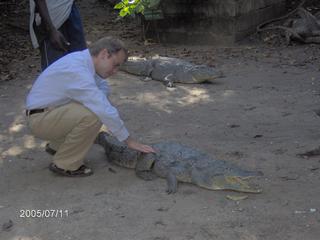With our first
shisha soiree fast gaining renown, and safe in the knowledge that we would have a hookah or three in attendance,
Hookah Palaver II: Gentrification saw an uptick in popularity. 100% of “Yes” respondees showed that, for this event at least, their RSVP was their bond. And we even squeezed in a couple more roommates and other friends. Thanks everyone!
Compared to “Why Did Blacks Vote Republican in 2004?” we were not as focused on the topic at hand. After I introduced the subject, we had a short all-inclusive conversation on the merits of gentrification. With such a large group, though (approaching 25), we soon devolved into smaller discussions. Still, the seed was planted, and throughout the evening I heard exchanges relating to the evening’s theme.
In addition, James gave us a treatment of gentrification, to the tune of
“Frosty the Snowman”:
Gentrification
Displaces families
Thru soaring rent and selfish landlords
And the influx of yuppies.
Gentrification
Is fair market change they say.
Interest rates are low, but we all know
How greed is the American way.
Gentrification
Is alive as it could be
Cultural demise right before your eyes
That's not the way it has to be
I think this is an important topic, particularly in the DC area, and I'm glad everyone gave some thought to the demographic changes in our region and in cities around the country. An example of this is our own house, which we will (most likely) vacate in April 2005 once it's sold. Of course, we in turn displaced some residents bought out by our slumlord.
Of course, the other “agenda item” was to chill out and smoke some hookah while listening to
Ali Farka Toure,
Khaled, and sundry other performers. Although we did not listen to any Bob, we did “turn our lights down low,” and enjoyed the ambience of fruity tobacco in the air.
The flavours we sampled included cherry, apple, orange, coconut, cantaloupe and grape. As time goes by, we are gradually learning how best to tend coals, apply foil, and get the water pipes flowing. This is an upward trajectory, so soon enough we shall be masters. We also broke in Kavitha’s hookah, “India,” which heretofore had not been used (aside from an abortive attempt which left the hookah filled with water).
Besides a gathering of friends, there were a couple more milestones to celebrate. It was
Liz’s birthday the day before, and on top of that she took the GRE last Wednesday. So we were able to fete my great roommate, and partook in some chocolate mousse (soup?). Of course, there was other great fare (samosas, veggies, clementines, hummus, cheeses, cookies, etc.) that our fabulous guests brought along, not to mention a few fruity drink mixes and some wine.
Our night also included an obligatory broadcast of “Meet Me in the Parking Lot!” as James, Andy, Sam and Chris shook it to Panjabi MC. Plus a massage line formed in the dining room to eliminate any residual stress from the week that had not already gone up in smoke and/or Scooby snacks.
Finally, as the clock approached midnight, my old friend Mo arrived from Pennsylvania. Not even a car crash or 10 hour layover in Hagerstown, MD, could keep him away. Of course, upon his arrival, Mo promptly tutored me on the proper layering of foil on the hookah pipe. Also, we need to upgrade our coals. Think of Mo as filling Anthony Hopkins's role in "The Efficiency Expert."
After most everybody left, James, Mo and I took in a short film on Muslim stand-up comedians performing in post-September 11 America. It’s an extra on the Fahrenheit 9/11 DVD and well worth a look. We knew the event was officially tapering off once roommate Brendan made his now-traditional early morning appearance to help us polish off the grape tobacco.
Thanks to everybody who came out to join us for a wonderful evening. Special thanks to James, Amber and Kavitha for bringing along their hookahs. Thanks to MIDC's Brandon for his selfless donation of flavoured tobacco. We'll you have in the fold for the third parley, Brandon! And gratitude is extended to Kevin and Picot for helping the less technologically endowed folks of Chez 1209 with the documentation of the proceedings.

















![Expat [DESTINATIONCOMPLETE]](http://www.expat.com/logo/expatBlogSmall.gif)